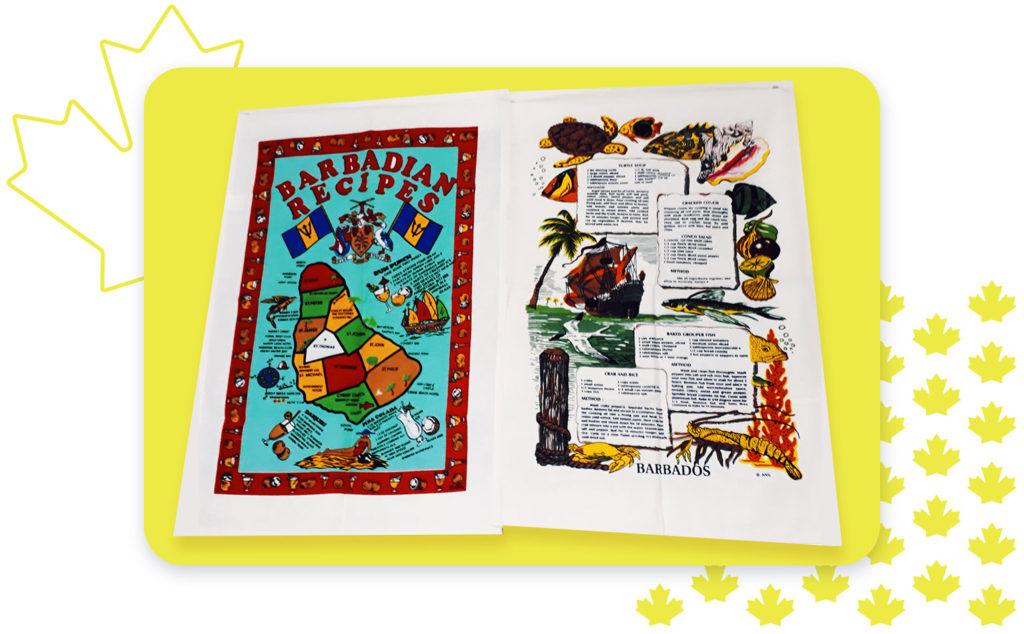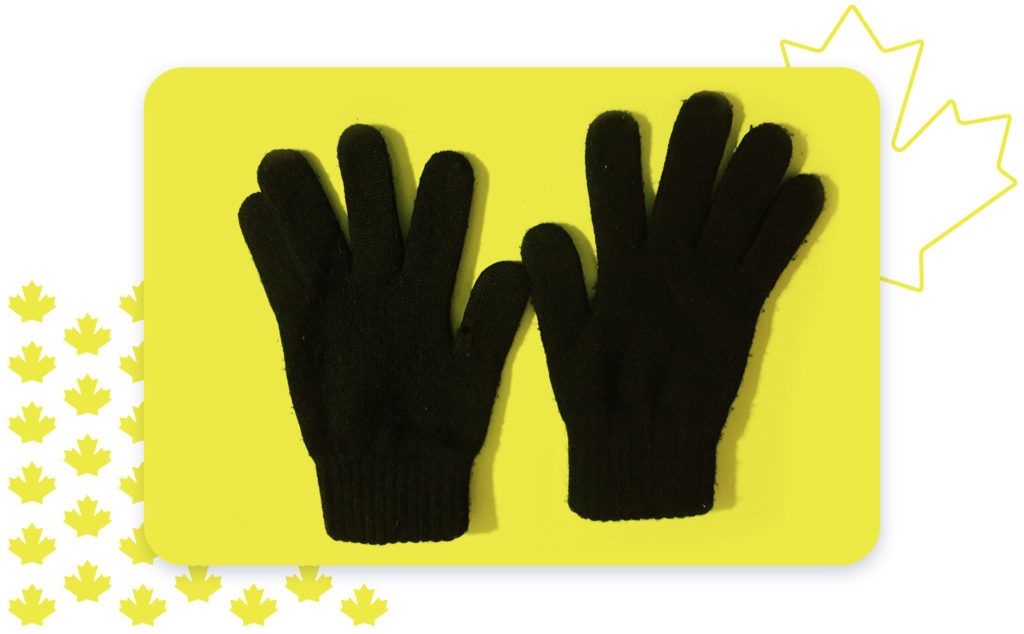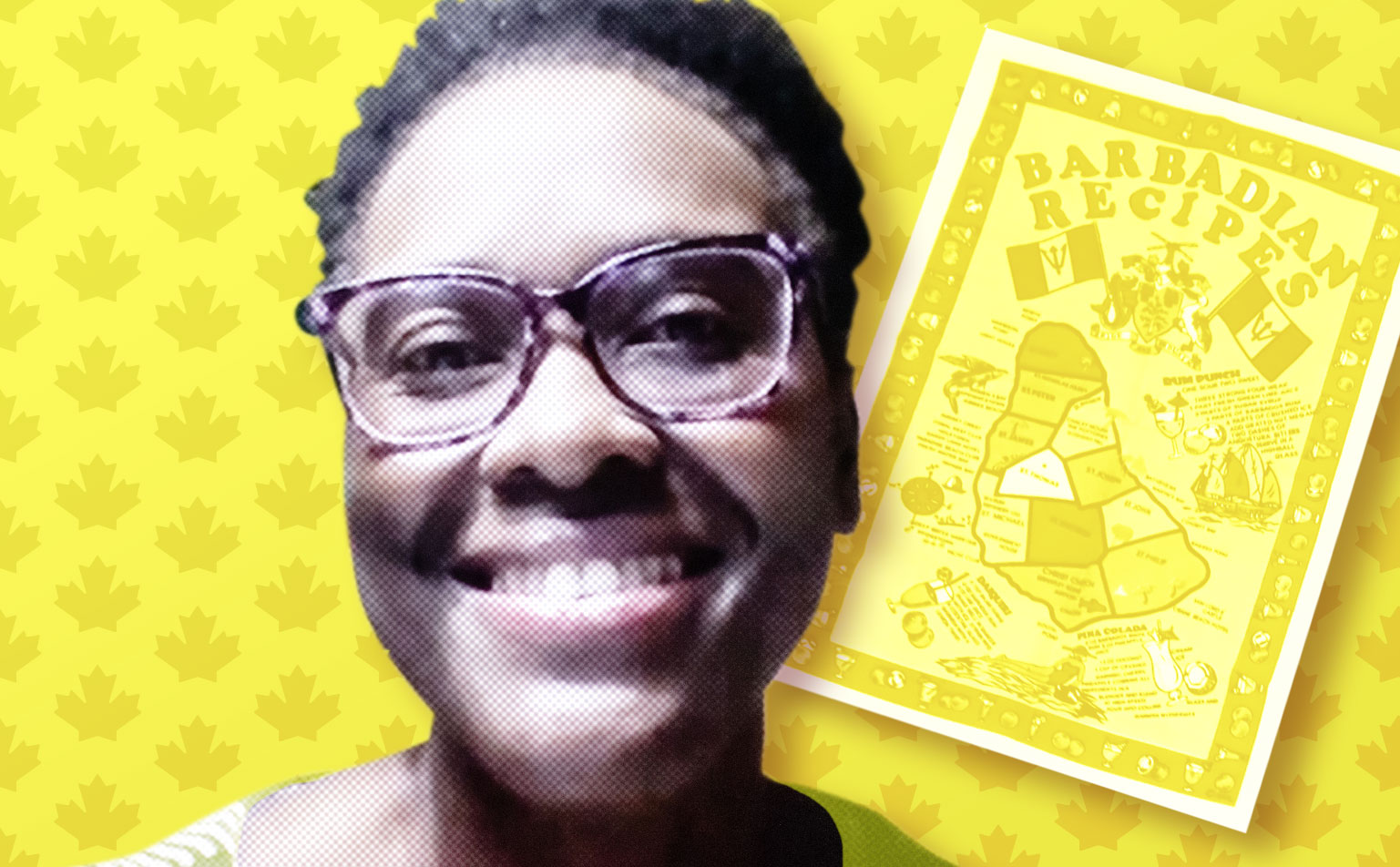Interviews that explore the journey and narratives of Canadian newcomers in our current times.
Coridelia Gibson has come from humble beginnings as she grew up in the rural parish of St. Johns, Barbados. She arrived in Canada very recently, in February 2021, to study International Development at Centennial College in Scarborough, Ontario.
Sharing a strong family bond with her family and having the interest to help others, Coridelia felt there was more for her to do in the world. After studying social work in Barbados, she moved to Canada to continue her studies and pursue a profession around helping others. I got an opportunity to talk to Cordelia and learn more about her journey and what pushed her to migrate to Canada.
Origin Story
Coridelia, can you tell me a bit about your upbringing?
I am a product of a single mother. I have seven siblings myself, and we grew up in the rural parish of St. John. I came up with a mother who worked on the plantation.
She would be cutting cane, and when that was crop time was over, there was cotton and other provisions to harvest. So I came up with a working mother, and in that environment, a single mom with eight children, you had to be a worker as well. Sometimes I said, oh, gosh, you know this lady bringing us up so hard, but we did not choose but to come up that way we did because it was just her and eight children.
Having eight in a family, you don’t have to look for a playmate as someone is always there. We came up hard, but it’s not hard in terms of being deprived. It was hard in terms of learning. Still, it was fun because we had each other. We kept each other company, played with each other and learned to be with each other. That is why I believe that we have a strong bond as individuals even up to adulthood.
It’s really humbling to hear about your upbringing. Tell me, what was it like for your family back home?
We never recognized that we were poor because my mother always provided for us. There was never a time when we lacked food. Working on a plantation, there were some benefits. If she was working with potatoes, she could bring home the pickings or get the potatoes at a cheaper price because she was working on the field.
So we came up hard, but it wasn’t stressful hard. It wasn’t hard in terms of suffering. It was hard in terms of the situation back here, and it was hard that we didn’t get what we wanted as children or what we think we wanted because it wasn’t a need.
As I got older and reflected on my mother, I never knew how she managed eight of us. My mother sacrificed a lot, and we might think parents have to sacrifice for their children, but to me, she went a step beyond in terms of making something of us out of nothing.
Did you find it challenging to pursue education?
It was not an easy task in terms of accomplishing my education. Being raised in a single-parent home and my mother did not have the funds to send us to a secondary school.
So when I left school at 16, I worked in the plantation fields to pick cotton. After the cotton-picking season was over, I was still on the plantation field harvesting beans and onions. Those are the provisions that were on the plantation. I took some classes to further my education, and from there, I had a desire to want more and not just settle.
I recognized that I could give more of myself. So I started studying in the evenings and working during the day. Then I applied to the university I got in.
It was not easy because being away from school for such a long period and integrating back into education was something new. There were failures in terms of courses, but the aim was not to give up, and that is what I did with the encouragement of friends and family.
I’m curious, is this where you developed your passion for helping?
Coming up poor, although we were in need, my mother was still giving and giving. She gave to those that were homeless; she gave to neighbours. Because I came up seeing my mother share her limited means with vulnerable individuals, I believe that that is where my passion came from. This is what compelled me to help others because it is something that I came up seeing my mother do.
When I studied social work at university, there was a mandatory internship for social work. I had met my supervisor, who had a desire to help feed the homeless population in Barbados. Instead of going to the city, we supported the homeless population’s needs in another rural parish. We started serving breakfast for the homeless in 2010, and it still continues to this day.

From your story, I can hear that a lot of your experience has been defined from growing up in Barbados. What are some of your favourite memories from there?
My favourite memories are summer, the feeling of can’t wait for school to finish, beach days, roasting breadfruit and flying fish and the sense of community.
When you hear about Barbados, they say that Barbados is one hundred and sixty-six square miles and a smile. That is who we are as individuals.
Our culture is based on music, food and tradition. Our culture is a people-person culture. When you think about Barbados or visit Barbados, it’s not the things done that make the culture. It’s the people that make Barbados’s culture.
Migration
Coridelia, I would like to know, what were your motivating factors to come to Canada?
Opportunity back home did not allow me to have a social work job, so I continued working until years later, I desired to do more.
I wanted to gain more knowledge. I mentioned working with the homeless population, but I didn’t want to just work to help homeless people. I also wanted to gain the knowledge and the right skills. We can be doing something with all our might and a lot of passion but are we doing it correctly, with the right skills.
I wanted to obtain the knowledge and gain skills that will allow me to work on a larger scale with the homeless population or individuals who have been displaced because of disaster.
This is one of my motivating factors in coming to Canada: gaining knowledge and skill and giving back to Canadian society on a broader scale.

Coridelia, Tell us about the picture of these gloves you’ve shared, and it’s significance.
These are the gloves I brought to Canada. Coming here would be the first time I was going to experience the cold weather, and no one has gloves in my family. I called friend’s everyone told me that I have to have gloves, but no one had any. Before I left, I saw a guy on the pasture with the cows. I saw him and thought I should let him know that I was going as he’s from the neighbourhood and we grew up together.
I told him I was taking a leap of faith to go forward, and I mentioned that I was leaving the next day and didn’t have any gloves. He said, “You don’t have any gloves? I have a new pair of gloves in my suitcase. Those gloves were for you,” which he brought to me that evening.
I’ve been searching, praying and asking God for gloves, and those gloves were in my neighbourhood just a few houses down.
Did how did you feel about making this move to Canada?
I always believe it’s good to try something new. I never saw myself as brave and taking on the world, so there was excitement in a different sense. There was some fear because this would be the first time I left home, so it was bittersweet. I felt there was a link that would be missing, but at the same time, I was breaking this chain for progress.
Even though it’s been a short time for you in Canada, I’m curious to know what you’ve learned about the Country so far?
From the few individuals I have met, I’ve learned that Canada has a little Barbados in it in terms of compassion, empathy and kindness. This is what I have seen thus far, and it’s not just the individuals that have helped me adjust but also the support of others.
I recall when I was unwell and unable to attend class because I got a message from my Professor saying, “Cordelia hope you get better soon. If there’s anything you need, please, reach out for anything.”
I didn’t expect a professor to send me an email inquiring about my wellbeing and even going a step further to provide more support. It felt like I was at home.
I love the way you put that! There is definitely a little Barbados in Canada, and I would say probably a little bit of every part of the world here in Canada.
Hopes & Aspirations
So Coridelia, do you have any thoughts on what it means to be Canadian?
Canada is a very accommodating country for immigrants like myself. When it comes to giving individuals the opportunity to study and to work, it doesn’t only help build the economy, but it helps build ourselves in terms of self-development.
If you are developing yourself, I believe that you automatically help develop the Country. So these are my thoughts on what being Canadian means, working together, building each other and building humankind.
This is what I think based on my limited knowledge of Canada. Maybe in a year, you can ask me the same question, and I might give you a different answer.
That’s a great answer! Based on your journey, do you have any advice that you would give to a Canadian newcomer?
Back home, there’s a saying, “If you don’t have a dream, you don’t have a chance” So I would say that despite your fears, your challenges and the uncertainty, you need to step up into faith. That is what I did.
It was a battle, it was a struggle, but I stepped up regardless. If you don’t make the first step, you will never know what experience you may lose out on, and you will end up living life regretting it.
There’s nothing wrong with making mistakes because we learn from our mistakes. So take the step of faith. You wouldn’t regret it!
This is some excellent motivational advice. I think I would have started chasing my dreams much earlier if I was told this when I was new to Canada.

Coridelia, tell me about the significance of this picture you’ve shared with us?
It is an old bible that I have had for several years. When you come into a new country in terms of your luggage, you don’t want to be overweight because of the cost.
I remember my eldest sister who helped me packed; she asked why I was taking this because it would be more weight? I told her what I will do is take out some of the items in the suitcase and put this in.
This is important to me. It has the story of my life, the notes that I would have made, promises that I would have relied on, and this book has and continues to reveal to me my maker is. It was important for me to have this physical book in my hand, hear pages, and know that I can write in it. I knew that this was one of the items I wanted to have with me here in Canada.
Before We Wrap Up…
What would you do if you were to win Canada’s Luckiest Newcomer contest grand prize of $20,000, presented by CIBC and the Canadian Newcomers Network?
I can hear my mother’s voice in my head & the first thing she is going to say is, “Cordi, you’re going to give it away.”
I know that are organizations within the county helping vulnerable groups, so I will give some to the organizations supporting the wellbeing of communities. I also believe that the homeless population and individuals displaced by disaster should benefit from some of this prize, so I would split the funds there. Then last but not least, I have some upcoming school fees to be paid next semester, so whatever can go towards assisting my school would be next.
I believe a little can become much when they are in the right hands, so I wouldn’t say that I would give it away, but I will say that I will share it.
Is there anything else you would like to share with others who may be reading your story?
There’s joy in the journey. All of us have our journeys, and all of us have our stories. We make our story either joyful or not joyful. I came up hearing that “The world is your oyster.” and for me to get that oyster, I have to dive to get it. So I would encourage anyone that wants to take the opportunity, just dive to get that oyster because that oyster would be your prize.
Thank you Coridelia, It was really great to hear about your journey, and I wish you all the best as you pursue your goals to build a career in helping others.
As I reflected on Coridelia’s story, I’m reminded that the colourful fabric of Canada is woven together by the many multicultural identities built by resilience, hard work and dreams. Stories like Coridelia’s remind me that Canada is stronger today because of Canadian newcomers who bring the wealth of their experiences and diversity to make Canada a better place.
This Canadian Newcomer Story is produced by The Canadian Newcomers Network and SNCD Media, created through a storytelling process by Sid Naidu.
Sid Naidu is an international development advocate & documentary photographer who uses visual arts and storytelling to create social impact. Instagram / Twitter
*Opinions expressed are those of the author, and not necessarily those of Student Life Network or their partners.



